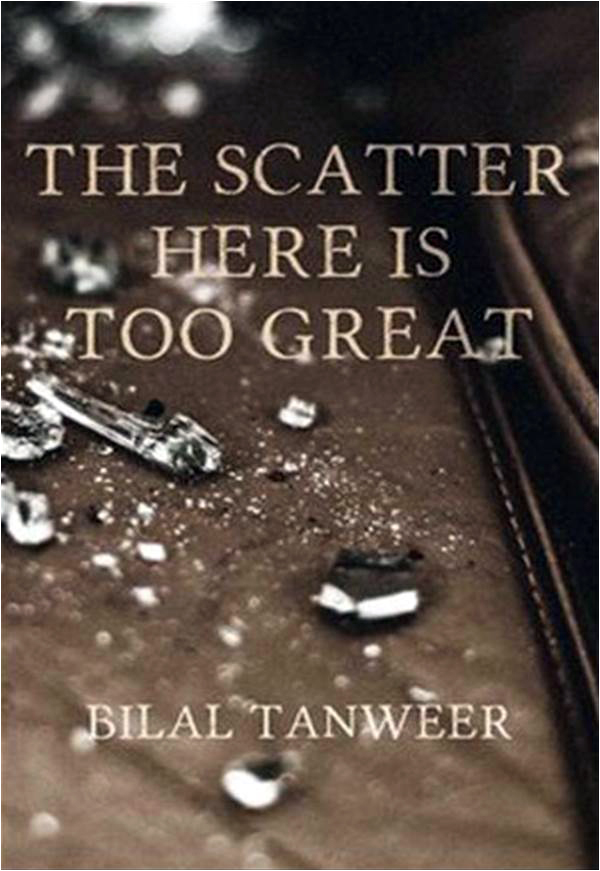
 There’s always a certain dread that overtakes me when I’m presented with a book by a Pakistani author, a dread compounded by the fact that in the Land of the Pure, six degrees of separation is a concept reserved only for those unfortunates who end up being known as “And Friend” in the social pages. I have a whole spiel prepared about this, and it has much to do with deploring the gradual withering of a culture of literature in Pakistan, but the truth is much simpler: there’s a limited people of number out there who continue to enjoy reading, and of that a fairly large sub-set are writers of any stripe. Which means that Those Who Read tend to know Those Who Write, and oft-times, the two are the same. Unlike Tennyson’s approach, ever the twain shall meet.
There’s always a certain dread that overtakes me when I’m presented with a book by a Pakistani author, a dread compounded by the fact that in the Land of the Pure, six degrees of separation is a concept reserved only for those unfortunates who end up being known as “And Friend” in the social pages. I have a whole spiel prepared about this, and it has much to do with deploring the gradual withering of a culture of literature in Pakistan, but the truth is much simpler: there’s a limited people of number out there who continue to enjoy reading, and of that a fairly large sub-set are writers of any stripe. Which means that Those Who Read tend to know Those Who Write, and oft-times, the two are the same. Unlike Tennyson’s approach, ever the twain shall meet.So I was – I hope understandably – somewhat reticent about reviewing Mr. Tanweer’s first novel, The Scatter Here is Too Great. Past experiences of reading books by ‘local’ authors have led to highly awkward run-ins at various literary festivals, dinners and the like, most of which have led to defusing through a combination of avoidance and non-committal commentary of the sort that one would leave seasoned diplomats feeling as though they’d really had to work for their postings. Ultimately however, curiosity – and nascent hope – overcame trepidation.
Mr. Tanweer’s novel is interesting, certainly, with a whole host of characters whose stories intersect at multiple points. The most overt interstice is that of a bomb blast, which rips through the air of Karachi, scattering its impact across the lives of several different people: a slightly potty Communist poet who’s the subject of harassment by what our local newspapers would refer to as “the youth”; a collections agent who repossesses vehicles for banks (frequently at gun-point); an ambulance driver who suffers a nervous breakdown; a young boy with a Scherezade-like elder sister who tells him tales every night; a couple out on an furtive date at the sea-side in a “borrowed” car and more. Mr. Tanweer’s novel describes scenes from the lives of these people, before, during and after the blast, and it is this thread that he weaves into a larger tapestry.
The fun of The Scatter Here is too Great (inasmuch as a deadly explosion can be considered “fun”) is in the fact that the stories it contains are put together as stand-alone tales; there has been an explosion of the short-story form in Pakistani writing recently, and Mr. Tanweer’s book is no exception to this. However, the lack of a clear linear progression or neatly worked political symbolism, or heavy-handed public-service-announcements shine through the trope: form, in this case, is subjugated to function. The stories are less concerned with why an explosion has taken place, and instead focused on its fall-out; and although the links only start to emerge in retrospect, they’re crafted with real skill and a sense of authenticity. For once, we have a writer whose work is neither cloyingly self-indulgent, nor overtly tailored towards satisfying the sensibilities of the Man Booker judges panel. Praise be.
[quote]In Pakistan Those Who Read tend to know Those Who Write, and oft-times, the two are the same[/quote]
Mr. Tanweer may well call himself Legion, since where his writing excels is in demonstrating the many voices, many personalities and the circumstances of many. His characters are almost exclusively from what our politicians would refer to as “the common man” and part of me feels slightly left out; I know everyone likes a bun-kabab, but surely burgers aren’t that rare. This is not a bad thing, despite the fact that The Scatter Here is Too Great is written about characters who, if I’m completely honest, may as well be uber-real or completely fictional. I haven’t enough context or socio-political awareness to judge the veracity of his voices, and accept that limitation along with the inevitable trolling that looms large on my personal horizons upon such an admission. But there is a ring of truth running through each character, behind their argot and their language, and the way in which they see the world; it’s something that would, I suspect, be very difficult to fake convincingly.
The very fact that Mr. Tanweer can pull off this balancing act would lead me to be concerned about the onset of multiple-personality disorder, but for one or two caveats. Firstly, there is enough commonality in the general tone of each story to tell that these are originating – or at least being recounted – by a single individual. This can sometimes lead to a bit of haziness, since like a Gregorian chant, it becomes difficult to pick constituent voices out of the greater whole. This has nothing to do with the language, which hits a whole range of notes, each one with substantial impact, and more to do with the fact that all of Mr. Tanweer’s characters speak in the first-person – it can be wearisome to read a series of auto-biographical narratives at a stretch. More than the trope of narration though, the primaries in The Scatter Here is Too Great are all male; as such, they tend to start “feeling” similar after a while, and it’s not hard to imagine that all of the individual stories in this book are actually part of an individual’s very fragmentary chronology. The variation, which is by far the most interesting part of The Scatter Here is Too Great, bobs into view often enough for you to know it’s there, but sometimes struggles against its author’s deft textual touch.
As someone who has spent the vast majority of December listening to visitors from assorted Pakistani and international cities talking about how much they love Karachi, frequently from the wrong end of a tumbler, what stands out about Mr. Tanweer’s novel is how much it captures the reality of Karachi, even for those of its residents (us?) who don’t use public transport, or for whom a trip to the beach means booking a flight to the Maldives (I jest. No, not really). It succeeds tremendously in describing the reality of the city outside the environs of the Sind Club or Zamzama, not just in the superficiality of imminent violence and trauma, but in the lives lived by people who either lack or cannot exercise the privilege of having agency. It’s neither pedantic nor hypocritical (that’s right, I’m looking at you, Mr. Imran “Stupid Westerners, someone go get me the tux for tonight’s black-tie fundraiser” Khan), but strongly real, and will resonate with anyone – especially Karachi residents – who has ever turned on the television to see some drag-queen-inspired anchorperson with more foundation than common sense deliberately avoiding the topic of what life for the average Pakistani really is, in favour of asking the same fourteen talking-heads, insipid questions about political non-issues. In an odd sort of way, there’s the foundation of a manifesto in this novel.
But it’s really hard to find, because the scatter (of characters) here is indeed too great: there are enough sub-stories and allegories that at times, Mr. Tanweer’s book reads as a pastiche, vignettes held together through a delicate lattice of coincidences and overlaps. Like a kaleidoscope, the whirligig of novellas that comprise The Scatter Here is Too Great is bewildering, darting in and out of focus. Tanweer’s novel is technically very competent, and possesses all the right traits to catch your eye: he is clearly a high-performing and accomplished output of an MFA programme. But like cubic zirconia – just as beautiful and eye-catching at first glance as their more glamorous diamond counterparts – this particular work of his grazes, rather than embodies the deeper lustre that comes from compression, pressure and formation. Part of this perception is undoubtedly shaped by my own belief that to write, one must live; that talent is all well and good, but that there is no substitute for experience in telling compellingly paced, utterly convincing, focused stories. Fortunately, it would seem that The Scatter Here is Too Great is right on the brink of that line, and that its author is well-poised to step across. Tanweer has the skill down, and much of the exposure, at least to Karachi specifically.

